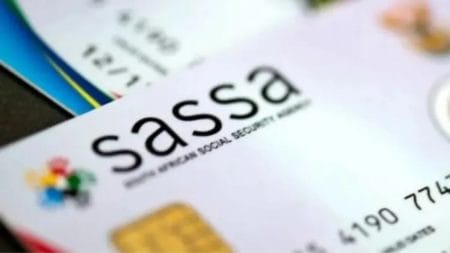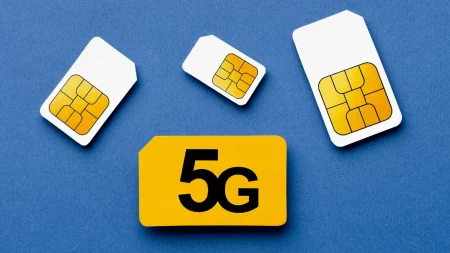The SASSA grant verification process has become a hot topic of discussion in South Africa’s Parliament, with Members of Parliament (MPs) warning that the new rules, which were introduced as part of the 2025/26 budget, are “unachievable.”
These new rules, which were designed to streamline the process and reduce fraud, have raised significant concerns regarding their feasibility and impact on both the South African Social Security Agency (SASSA) and the millions of vulnerable South Africans who rely on social grants for survival.
The Portfolio Committee on Social Development, led by Bridget Masango, has made it clear that they believe the rules will place an undue burden on SASSA’s already strained infrastructure, as well as on the individuals who benefit from the agency’s services.
This article delves into the SASSA Grant Verification rules, the criticisms voiced by MPs, and what this means for South Africa’s social welfare system moving forward.
What Are the New SASSA Grant Verification Rules?
As part of South Africa’s 2025/26 budget, the National Treasury has imposed stricter verification requirements for social grants, which include several key measures aimed at reducing fraud and improving transparency.
The SASSA grant verification rules now include:
Quarterly Reporting: SASSA is required to provide quarterly reports on the status of grants that have been suspended, cancelled, or reviewed. While this measure is intended to ensure transparency and accountability, MPs have raised concerns that it will burden SASSA’s already stretched resources, leading to delays and inefficiencies.
Income Verification and Cross-Checks: In an effort to ensure that grants are only provided to eligible individuals, SASSA must cross-check beneficiaries’ income with several key government databases, including those of SARS (South African Revenue Service), the National Student Financial Aid Scheme (NSFAS), the Unemployment Insurance Fund (UIF), and Home Affairs. MPs are concerned about the complexity and feasibility of implementing such cross-checks, particularly as many South Africans earn informal income that is not captured in these systems.
Biometric Authentication: Biometric authentication, such as fingerprint scanning or facial recognition, will be required for beneficiaries flagged as suspicious. While this is seen as an effective method to combat fraud, concerns about accessibility and privacy have been raised, especially in rural areas where technology may not be readily available.
MPs Warn the New SASSA Grant Verification Rules Are Unachievable
The criticism of the SASSA grant verification rules has been led by Bridget Masango, the Chairperson of the Portfolio Committee on Social Development, who described the new verification requirements as unachievable. Her warning comes after the committee raised multiple concerns about the practicality of implementing these rules, including the challenges they present to both SASSA’s operations and beneficiaries.
Key concerns raised by MPs include:
Overburdening SASSA’s Administrative Capacity: The requirement for quarterly reporting and regular updates on grant statuses will demand a significant amount of time and effort from SASSA. Given the scale of social grant recipients in South Africa, MPs argue that this new reporting process may overwhelm the agency, leading to delays and errors in processing grants.
Inaccessibility for Vulnerable Beneficiaries: Many South Africans rely on social grants as a lifeline for basic needs. However, MPs fear that the new SASSA grant verification rules could disproportionately affect the most vulnerable individuals, particularly those in rural areas or those who lack access to the necessary technology for biometric authentication and income verification. These individuals could be unfairly excluded from receiving grants if they do not meet the new verification requirements.
Risk of Exclusion: Informal workers and those without a formal income record may be wrongly excluded from receiving grants. South Africa has a large informal economy, and many people in this sector do not have a formal relationship with SARS or other entities that would allow for easy income verification. MPs warn that this could result in the exclusion of a significant portion of the population who rely on grants for survival.
Privacy and Data Security: The introduction of biometric authentication raises serious concerns regarding privacy and data security. MPs have questioned how securely personal data, including biometric information, will be stored and protected. There are also fears that the system could be vulnerable to data breaches or misuse.
Technological Barriers: Access to the necessary technology for SASSA grant verification is another major concern. Many beneficiaries, especially those in rural areas, may not have access to smartphones, biometric devices, or reliable internet connections. This could create an inequality in the system, where only those with access to technology are able to comply with the new requirements.
Read more: “We’ve Got Nothing”: SASSA Grant Beneficiaries Hit Hard by Online Verification System
Why Are MPs Labeling the New Rules ‘Unachievable’?
MPs’ criticism of the SASSA grant verification rules hinges on several factors that make the new system difficult to implement effectively. Here are the primary reasons why they are labeling the rules as unachievable:
Inadequate Infrastructure: SASSA has long struggled with delays and inefficiencies in processing grants, and the new verification rules are likely to stretch the agency’s infrastructure to its limits. The quarterly reporting and income verification processes could overwhelm an already overstretched system, causing delays in the disbursement of grants and errors in beneficiary assessments.
Complexity of Verification: The process of cross-checking income data from multiple government departments is complex and likely to be time-consuming. Given that many individuals in the informal sector have income that is not formally recorded in these systems, the verification process could result in false negatives, where deserving beneficiaries are unfairly flagged as ineligible.
Exclusion of Vulnerable Groups: For the new verification rules to work effectively, beneficiaries need to have access to technology like smartphones or biometric scanning devices. However, this creates a digital divide where individuals without access to these resources could be excluded from receiving social grants. MPs argue that the system could disproportionately affect those in rural communities, elderly individuals, and people with disabilities.
Increased Administrative Burden: With quarterly reporting, income checks, and biometric authentication, the SASSA grant verification process has become more complicated and resource-intensive. MPs are concerned that this will lead to increased bureaucracy and delays, ultimately making the system less effective for those who need assistance the most.
What Does This Mean for South Africa’s Social Welfare System?
The introduction of the SASSA grant verification rules has sparked a broader debate about the future of South Africa’s social welfare system. While the goal is to reduce fraud and ensure that grants are being distributed fairly, MPs fear that the new rules will lead to unintended consequences that harm the very people the system is designed to help.
Key concerns include:
Exclusion of Vulnerable Citizens: The new rules may result in many of South Africa’s most vulnerable citizens being excluded from receiving the social grants they rely on. This could include individuals who work in the informal economy, the elderly, or those without access to the required technology.
Pressure on SASSA’s Operations: The new rules place significant pressure on SASSA to implement complex verification processes that may not be feasible given the agency’s current capabilities. MPs argue that this could lead to delays in grant distribution and a backlog of applications, ultimately undermining the system’s effectiveness.
Balancing Efficiency and Accessibility: The challenge for SASSA and the National Treasury will be to balance the need for fraud prevention with the need for accessibility. Social grants must remain accessible to those who need them the most, and any measures to reduce fraud should not result in undue hardship for beneficiaries.
Learn more: Common Reasons Your SASSA SRD Grant Might Be Declined
Potential Solutions
To address the concerns raised by MPs, several potential solutions could be considered:
Phased Implementation: Rather than introducing the SASSA grant verification rules all at once, a phased approach could be adopted. This would allow SASSA to test the system and make adjustments based on feedback before full implementation.
Improved Access to Technology: Mobile units or community hubs could be set up in rural areas to give beneficiaries access to the necessary technology for biometric authentication and income verification.
Simplifying Verification: The income verification process could be simplified, especially for informal sector workers, by exploring alternative verification methods that do not rely on formal records.
Robust Data Protection Measures: SASSA must ensure that biometric data and other sensitive information are stored securely and that strict data protection measures are in place to prevent misuse.
Moving Forward with Caution
The introduction of SASSA grant verification rules is an important step toward ensuring the integrity and fairness of South Africa’s social welfare system. However, MPs’ concerns about the feasibility of these new rules underscore the need for a more pragmatic and inclusive approach. SASSA and the National Treasury must work together to ensure that the system is both effective in reducing fraud and accessible to those who rely on it the most.
For more insights, you can watch the full interview with Bridget Masango, Chairperson of the Portfolio Committee on Social Development.










